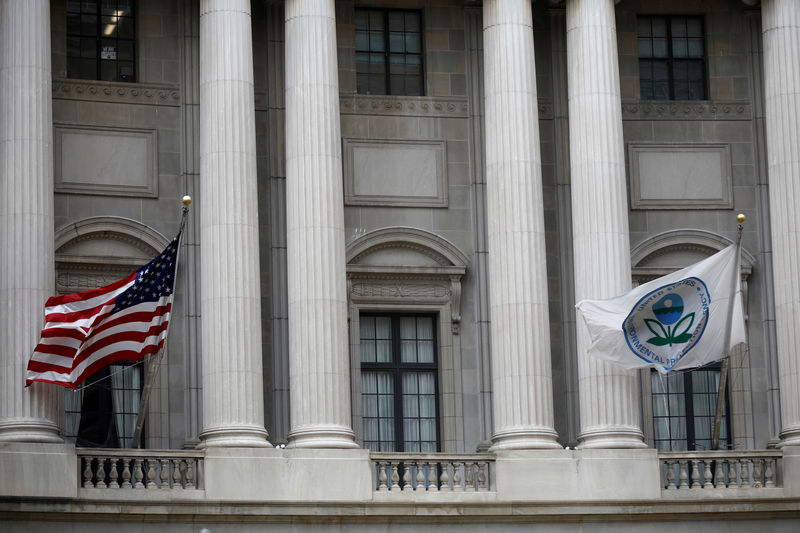By Jarrett Renshaw, Humeyra Pamuk and Chris Prentice
WASHINGTON (Reuters) - The Department of Energy has given the Environmental Protection Agency its scoring results for the 40 outstanding 2018 applications made by small refineries for waivers from U.S. biofuel laws, four sources familiar with the matter said on Wednesday.
The recommendations from the Energy Department are a crucial step in the EPA’s process for weighing the exemption requests, which can save refineries millions of dollars in regulatory costs and have become the center of a bitter dispute between the rival oil and corn industries.
The U.S. Renewable Fuel Standard (RFS) is designed to help American farmers by requiring oil refiners to blend certain volumes of biofuels into their fuel each year or purchase credits from those that do. But small refineries with a production capacity of 75,000 barrels per day or less can secure waivers if they prove that compliance would cause them financial harm.
Under President Donald Trump, the EPA has vastly expanded the number of waivers granted to refineries, angering Midwest farmers and their legislative backers who say the policy destroys demand for corn-based ethanol and other biofuels at a time they are already struggling.
For 2017, the EPA granted 35 exemptions to small refineries, without denying any applications, up from seven exemptions issued in the last year of the Obama administration, according to EPA data. That reduced the costs of credits that some refiners such as Valero Energy Corp (NYSE:VLO), PBF Energy Inc and HollyFrontier Corp must buy in order to comply with the RFS, saving them hundreds of millions of dollars.
For 2018, there are a total of 40 petitions pending to obtain a small refinery waiver. Traders and market participants have been awaiting the decisions for months now.
"No decisions regarding 2018 SREs have been made," Michael Abboud, a spokesman for the EPA said. "Many aspects of the decisions for exempting individual refineries are based on confidential business information."
DOE spokeswoman Shaylyn Hynes did not immediately respond to a request for comment.
FINAL DECISIONS IN LATE MAY?
In mid-April, in an interview with Reuters, EPA Administrator Andrew Wheeler said the agency was awaiting DOE input to proceed with the applications. He did not give a time frame on how long it would take the agency to make a final decision on the petitions.
One source familiar with the matter said a final decision on the waivers was not expected to come until late May.
Wheeler had also said that fewer waivers may be granted this year, as the prices of biofuel credits, called Renewable Identification Numbers or RINs, have fallen, easing the financial strain on refineries complying with the biofuel blending requirements.
One source with knowledge of the DOE scoring process said, however, that RIN prices had little bearing on how the department assesses applications.
Ultimately, the EPA has the final decision on whether an application is granted and the agency has ignored recommendations from the DOE to limit the waivers in the past, according to Reuters reporting.

U.S. Republican Senator Chuck Grassley for Iowa wrote a letter to the DOE last month seeking information on how the agency scores the applications, along with details on the EPA’s past disagreements over the applications with DOE.